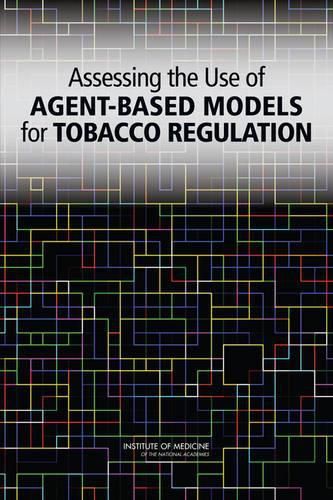Readings Newsletter
Become a Readings Member to make your shopping experience even easier.
Sign in or sign up for free!
You’re not far away from qualifying for FREE standard shipping within Australia
You’ve qualified for FREE standard shipping within Australia
The cart is loading…






Tobacco consumption continues to be the leading cause of preventable disease and death in the United States. The Food and Drug Administration (FDA) regulates the manufacture, distribution, and marketing of tobacco products - specifically cigarettes, cigarette tobacco, roll-your-own tobacco, and smokeless tobacco - to protect public health and reduce tobacco use in the United States. Given the strong social component inherent to tobacco use onset, cessation, and relapse, and given the heterogeneity of those social interactions, agent-based models have the potential to be an essential tool in assessing the effects of policies to control tobacco.
Assessing the Use of Agent-Based Models for Tobacco Regulation describes the complex tobacco environment; discusses the usefulness of agent-based models to inform tobacco policy and regulation; presents an evaluation framework for policy-relevant agent-based models; examines the role and type of data needed to develop agent-based models for tobacco regulation; provides an assessment of the agent-based model developed for FDA; and offers strategies for using agent-based models to inform decision making in the future.
$9.00 standard shipping within Australia
FREE standard shipping within Australia for orders over $100.00
Express & International shipping calculated at checkout
Tobacco consumption continues to be the leading cause of preventable disease and death in the United States. The Food and Drug Administration (FDA) regulates the manufacture, distribution, and marketing of tobacco products - specifically cigarettes, cigarette tobacco, roll-your-own tobacco, and smokeless tobacco - to protect public health and reduce tobacco use in the United States. Given the strong social component inherent to tobacco use onset, cessation, and relapse, and given the heterogeneity of those social interactions, agent-based models have the potential to be an essential tool in assessing the effects of policies to control tobacco.
Assessing the Use of Agent-Based Models for Tobacco Regulation describes the complex tobacco environment; discusses the usefulness of agent-based models to inform tobacco policy and regulation; presents an evaluation framework for policy-relevant agent-based models; examines the role and type of data needed to develop agent-based models for tobacco regulation; provides an assessment of the agent-based model developed for FDA; and offers strategies for using agent-based models to inform decision making in the future.